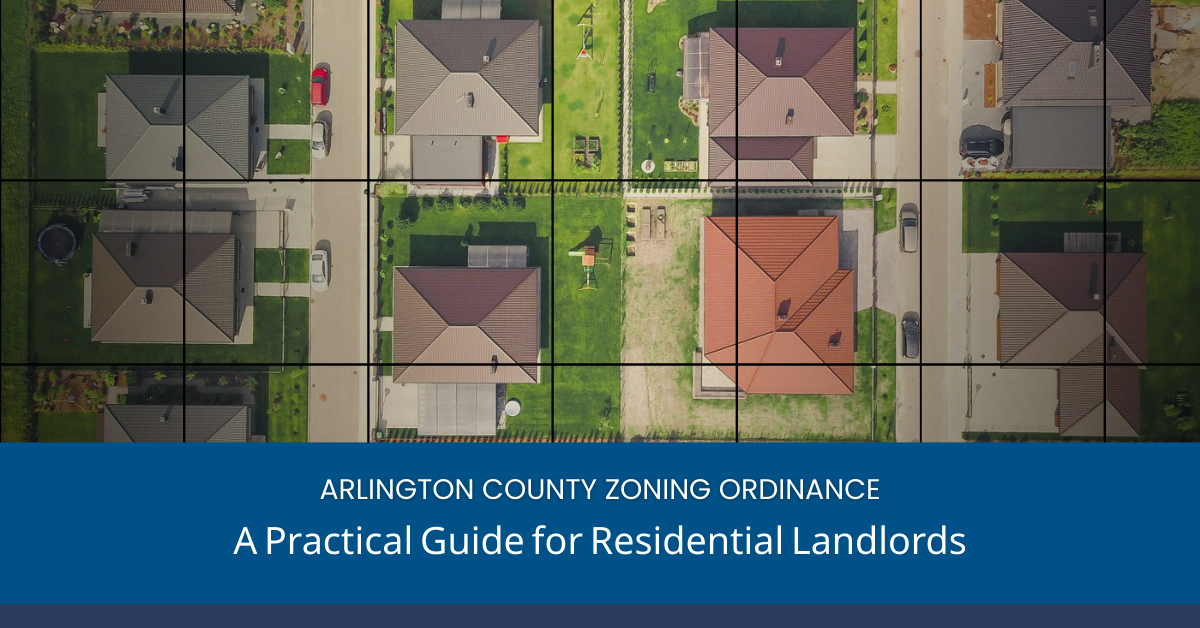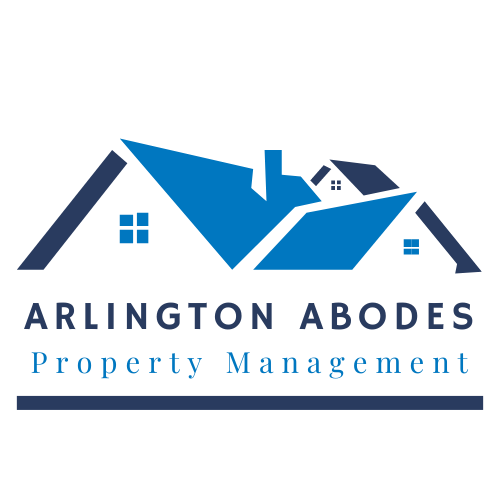Hidden Costs of Owning a Rental Property in Arlington, VA
Hidden Costs of Owning a Rental Property

Owning a rental property in Arlington, VA, presents an appealing investment opportunity, offering potential for steady income and property value appreciation. However, beneath the surface of this attractive investment lie hidden costs that can significantly impact profitability. Expert Arlington Virginia Broker, Brad Winkelmann, sheds light on these unforeseen expenses, emphasizing the importance for landlords to understand and budget for the entirety of rental property expenses. From property management to the hidden costs of renting out your house, understanding these financial obligations is crucial for maintaining a profitable investment.
This article delves into the various hidden costs associated with owning a rental property, including routine maintenance costs unique to Arlington, the financial impact of unexpected emergency repairs, vacancy expenses, tenant defaults, and eviction costs. Additionally, it addresses the challenges of managing inflation and rising costs, all of which are critical considerations for property owners. With an authoritative overview of landlord responsibilities and guidance on budgeting for these expenses, landlords can better navigate the complexities of the investment property landscape, ensuring a more stable and rewarding investment journey.
Routine Maintenance Costs in Arlington
Regular upkeep expenses are a crucial aspect of owning a rental property in Arlington, VA. Landlords must perform yearly inspections to assess lease compliance and maintenance needs. After each tenant's departure, it is essential to inspect and redo bathroom caulking and grout to prevent water infiltration and potential mold growth. Additionally, landlords should drain and flush the water heater annually to avoid buildup and ensure it functions efficiently, especially before the winter season. Regular inspections of pipes are necessary to prevent leaks and damages, and educating tenants on the signs of potential issues like frozen pipes is crucial.
Importance of planned maintenance cannot be overstated. Proactive maintenance strategies help avoid costly repairs and contribute to tenant satisfaction. By maintaining appliances like HVAC systems, refrigerators, and dryers, landlords protect their investment and ensure the longevity of these essential items. Seasonal maintenance tasks such as pruning trees, cleaning gutters, and ensuring all safety measures are in place are vital for keeping the property appealing and safe. Landlords must also adhere to building codes and local regulations, ensuring the structural integrity of the property and the safety of its occupants.
By implementing a comprehensive maintenance plan and responding promptly to tenant requests, landlords in Arlington can maintain the value of their property and provide a safe, comfortable environment for their tenants.
Unexpected Emergency Repairs
In the realm of rental property ownership, unexpected emergency repairs can swiftly escalate costs and complicate financial planning. These repairs often arise without warning, demanding immediate attention to prevent further damage or to address safety concerns.
Examples of Emergency Repairs
Landlords may encounter a variety of urgent repair needs. Common scenarios include the sudden breakdown of HVAC systems, significant water damage leading to mold growth, or structural issues such as roof repairs or foundational damage. Electrical hazards, like a short in an outlet, also necessitate quick action to prevent potential fires. Additionally, unexpected events like burst pipes or termite infestations can require immediate and costly interventions.
Budgeting for Unexpected Costs
Brad Winkelmann, an expert Arlington Virginia Broker, emphasizes the importance of setting aside a realistic budget for these unforeseen expenses. Utilizing financial rules such as the 1% rule—allocating approximately 1% of the property's value annually towards maintenance—can provide a baseline. However, landlords should also consider the 50% rule, which suggests reserving half of the monthly rental income for maintenance, taxes, insurance, and other property-related costs. This approach helps in managing the financial impact when emergency repairs arise, ensuring that the rental property remains a viable and profitable investment.
Landlords must be vigilant in their property maintenance strategies to mitigate the frequency and severity of these emergencies, thereby safeguarding their investment and ensuring tenant safety.
Vacancy Expenses
Vacancy periods are an inevitable aspect of owning a rental property, and they can significantly impact the financial health of your investment. During these times, no rental income is generated, yet expenses such as utilities, maintenance, landscaping, and cleaning continue to accrue. These costs are often underestimated by property owners.
Impact of vacant periods
The Arlington office vacancy rate has seen a notable increase, particularly influenced by shifts to remote work during the pandemic. This rise in vacancy rates directly affects the revenue generated from commercial properties, challenging landlords to manage their budgets effectively. The ongoing high vacancy rates not only reduce income but also necessitate continuous investment in property upkeep to maintain its appeal and value.
Cost of utilities, maintenance during vacancies
During vacancies, landlords face the dual challenge of covering ongoing costs and preparing the property for future tenants. This period is optimal for conducting essential repairs and upgrades. Expenses during these times include utility payments to keep the property in good condition and additional costs for significant turnovers. Upgrades and improvements made during this period can enhance the property’s rental appeal and help attract high-quality tenants, thereby justifying the expenditures. However, these outlays require careful financial planning and budgeting to ensure they do not overly strain the property’s profitability.
Brad Winkelmann, an expert Arlington Virginia Broker, emphasizes the importance of landlords being prepared for these vacancy periods. By understanding the full scope of potential costs and budgeting accordingly, landlords can mitigate the financial impact and maintain the viability of their rental properties.
Tenant Defaults and Eviction Costs
Tenant defaults and eviction processes can significantly impact the financial stability of rental property investments. Understanding these challenges is crucial for landlords in Arlington, VA, to manage their properties effectively and mitigate potential losses.
Financial Impact of Non-Paying Tenants
When tenants fail to pay rent on time, it not only disrupts cash flow but also incurs additional administrative costs. Landlords often face difficulties in managing these situations, as highlighted by a tenant's struggle to negotiate payment plans due to medical expenses. Such scenarios underscore the need for clear communication and structured payment agreements to prevent financial strain on both parties.
Legal and Eviction Expenses
The eviction process begins with a legally mandated notice, typically a 5-Day Notice to Pay, which informs tenants of their overdue rent and the impending legal actions if the payment is not settled. If unresolved, landlords may proceed with filing an Unlawful Detainer (UD) action, which involves court proceedings and can lead to further expenses, including court fees and sheriff service charges. The process is not only costly but also time-consuming, emphasizing the importance of rigorous tenant screening and lease management to avoid such complications.
Landlords must be prepared for the possibility of legal disputes and ensure they adhere to state laws and proper procedures when dealing with tenant evictions. By understanding these legal frameworks and budgeting for potential legal costs, landlords can protect their investments while maintaining fair and professional relationships with their tenants.
Managing Inflation and Rising Costs
Inflation can significantly influence the financial landscape of owning rental properties in Arlington, VA. As the cost of living rises, so too do the operational expenses associated with maintaining a rental property. This includes everything from property taxes to insurance premiums, which are often adjusted in line with inflation. Moreover, the materials and labor required for property maintenance typically see cost increases over time due to inflationary pressures.
Impact of Inflation on Property Costs
Property owners may notice an increase in the value of their real estate assets as inflation rises. For instance, a property valued at $200,000 could potentially see an increase to $206,000 in just a year with a 3% inflation rate. This rise in property value can enhance equity and provide a greater profit margin upon sale. Additionally, as property values increase, landlords have the opportunity to adjust rental rates accordingly. This adjustment not only helps in managing the higher operational costs but also in maintaining profitability without compromising on tenant demand.
Strategies to Mitigate Rising Expenses
To effectively manage the impact of inflation, landlords can adopt several strategies. Firstly, maintaining a keen awareness of market conditions and adjusting rental prices based on current inflation rates is crucial. This ensures that the rental income covers increasing expenses while still attracting tenants. Secondly, landlords should consider the timing of property upgrades and renovations. By strategically planning these enhancements, they can add value to the property and justify higher rents, which can offset the increased costs due to inflation. Lastly, it is beneficial to have a robust budgeting plan that includes a reserve for unexpected inflation spikes, ensuring that sudden increases in costs do not jeopardize the financial stability of the investment.
By understanding these dynamics and implementing strategic measures, landlords in Arlington can safeguard their investments against the fluctuating economic conditions brought about by inflation.
Conclusion
Throughout this article, we've delved into the many layers of owning rental property in Arlington, VA, guided by insights from Brad Winkelmann, an expert Arlington Virginia Broker. His expertise has illuminated the financial intricacies from routine maintenance and unexpected emergency repairs to the overlooked aspects of vacancy expenses, tenant defaults, and the broader implications of inflation on property management. By understanding these hidden costs, landlords can adopt a proactive approach to budgeting and maintenance, ensuring their investment remains both profitable and sustainable over time.
As we close, it's evident that successful property management and ownership in Arlington require careful attention to the financial commitments that extend beyond the initial purchase. Landlords are encouraged to cultivate a detailed financial strategy that accommodates both anticipated expenses and those unforeseen. In doing so, they ensure their venture into rental property investment is as rewarding as it is challenging. For more information about Property Management and Real Estate My Services, please feel free to contact us at Arlington Abodes Realty & Property Management. Also, follow me on Facebook for tips and news, providing a vital resource for anyone navigating the complexities of property ownership in today’s market.
FAQs
What are the primary expenses for a landlord?
The main expenses for a landlord include fixed costs such as the mortgage, insurance, property taxes, homeowners association (HOA) fees, and costs related to rental licenses or inspections. These expenses are the bulk of what a landlord pays and can vary significantly based on the property's location, its value, and any outstanding debt.
Is it legal to manage my own rental property in Virginia without a license?
In Virginia, you are not required to have a license simply to manage property. However, certain activities deemed as 'licensed activities'—such as leasing out a property or handling rental applications—do require a real estate license. Regular maintenance and property inspections do not require a license.
Do landlords in Virginia need a specific license to rent out property?
No specific landlord license is required in Virginia. However, since renting out property is considered a business activity, some localities might require a general business license. For instance, in Arlington County, landlords who earn more than $10,000 annually from rental income must obtain a business license.
How can I determine if investing in a rental property is financially worthwhile?
To evaluate if a rental property is a good investment, calculate the price-to-rent ratio by dividing the median house price by the median annual rent. If the ratio is below 15, it might be more cost-effective to buy, whereas a ratio above 20 suggests that renting is likely more economical.










